5. The Sound of Music (1965)
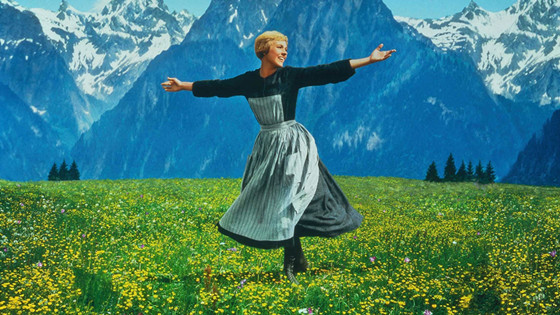
Technicolor musicals don’t get much more iconic or enduring than Robert Wise’s magnum opus, a critical and commercial hit that shattered every box office record in the history book en route to a hefty 5-Oscar haul that included Best Picture, Best Director, and Best Sound.
Terminally online cinephiles and smug film bros alike will tell you that “The Sound of Music”, which clocks in just shy of the 180-minute mark, adds up to little more than your average, schmaltzy tearjerker that is catnip for Academy voters while scoffing at its earnest sentimentality. Their loss. If watching Julie Andrews pull double duties as a mischievous ex-nun-turned-resourceful caretaker and all-around heroine taking care of the von Trapp clan while fending off the Nazis in the Swiss Alps doesn’t put a smile on your face and restore your faith in humanity, nothing will. Bonus points go to the late Christopher Plummer for his star-making turn as the stern but lovable Captain Georg.
4. In the Heat of the Night (1967)
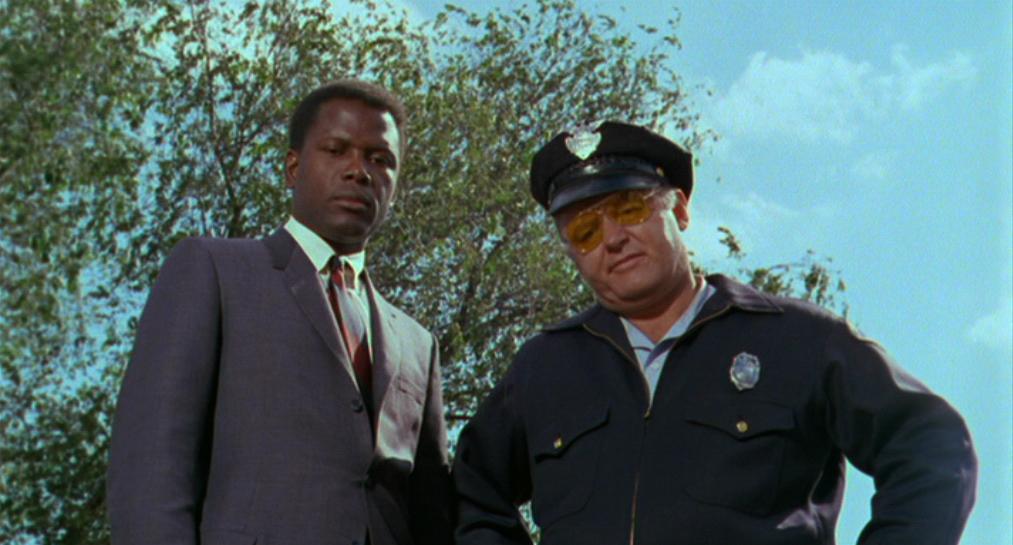
Simmering tension escalates and begins to boil over in this landmark crime thriller directed by Norman Jewison, which provided movie audiences with an unwavering look at race relations and police brutality of America in the wake of the Civil Rights movement through the lens of Sidney Poitier’s heroic Virgil Tibbs: A resourceful, resilient Black cop dispatched from the East Coast to the Deep South to investigate a murder in a desolate Mississippi town.
Though modern viewers may not get nearly as much today out of the well-meaning but now rather dated social commentary supplying the dramatic baseline for this now-near-sexagenarian movie, no dust has settled in Rod Steiger and Sidney Poitier’s dual performances as the initially uncooperative cop duo forced to settle their differences and ingrained bigotry aside to crack the murder case wide open. The latter earned his place in the annals of Oscar history and muscled his way into the 1967 Best Picture race for his stints here and in “Guess Who’s Coming to Dinner”, though one could argue he deserved to replace his two white co-stars (Steiger and Katharine Hepburn) in the acting slates.
3. Midnight Cowboy (1969)
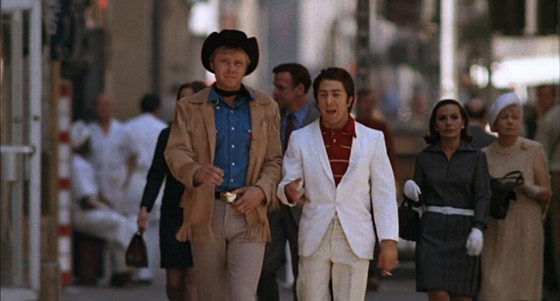
The first and still only X-rated film ever to walk away with the Academy’s coveted Best Picture prize, John Schlesinger’s gritty character study finds two bona fide silver screen titans in Dustin Hoffman and Jon Voight chewing up the scenery and earn respective Oscar nods as Joe Buck and “Ratso” Rizzo, a pair of down-on-their-luck two-bit hustlers driven by desperation and misguided ambition as they try to make ends meet on the fringes of the grimy concrete jungle also known as New York City.
A cracked-mirror vision of the American Dream that rattled censors, shot Voight’s career into the stratosphere, and set the template for a new influx of unglamorous countercultural American movies that tossed the rulebook aside and left a lasting mark in the 1970s zeitgeist, “Midnight Cowboy” encouraged viewers to root for two sleazy and not especially likable dirtbags who can’t help it but keep getting caught between a rock and a hard place. By the time the credits roll, though, you’ll wish you could watch them banter with each other for an extra two hours.
2. Lawrence of Arabia (1962)
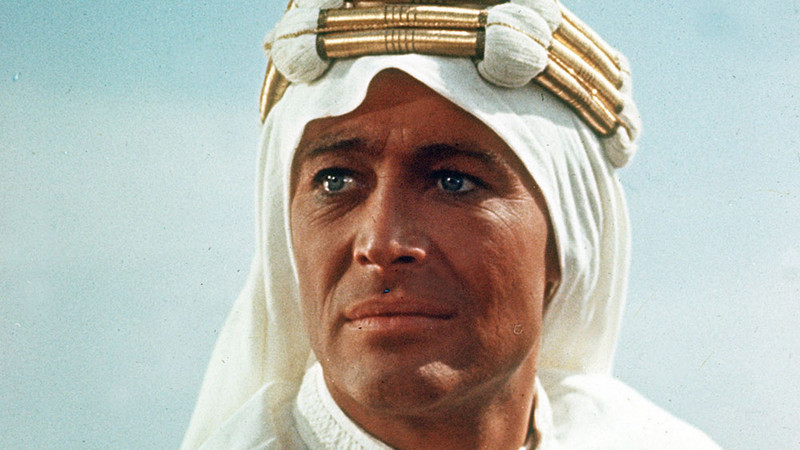
Diehard fans of the Dune saga looking for the original “charismatic white boy-turned-manipulative Messiah leads an indigenous desert tribe into revolt against a tyrannical colonial force” movie (that coincidentally also happened to be largely shot on location in the Jordan desert) owe it to themselves to sit through and experience the entire 228 minutes of David Lean’s colossal historical biopic — an epic of almost unprecedented scale and narrative ambition based on the experiences of famed British officer T.E. Lawrence (Peter O’Toole) leading the Arabs against the Ottoman Empire during the First World War.
Besides making an awesome double-feature with Denis Villeneuve’s rip-roaring sci-fi adaptation, “Lawrence of Arabia” represents a sort of last hurrah of a long-dead genre like the historical epic that was on its last legs and quickly flamed out as the ’60s drew to a close and “Easy Rider”, “Bonnie & Clyde”, and the whole Movie Brats generation ripped open film grammar.
It’s completely understandable for the uninitiated still working their way through their Oscar winners backlog to be on the fence for an old, three-plus-hour prestige-biopic given the kind of formulaic schlock the Academy tends to bend over backwards for, but just take our word for it: “Lawrence of Arabia” is good enough to single-handedly restore your faith on the genre, awards, and moviegoing as a whole.
1. The Apartment (1960)
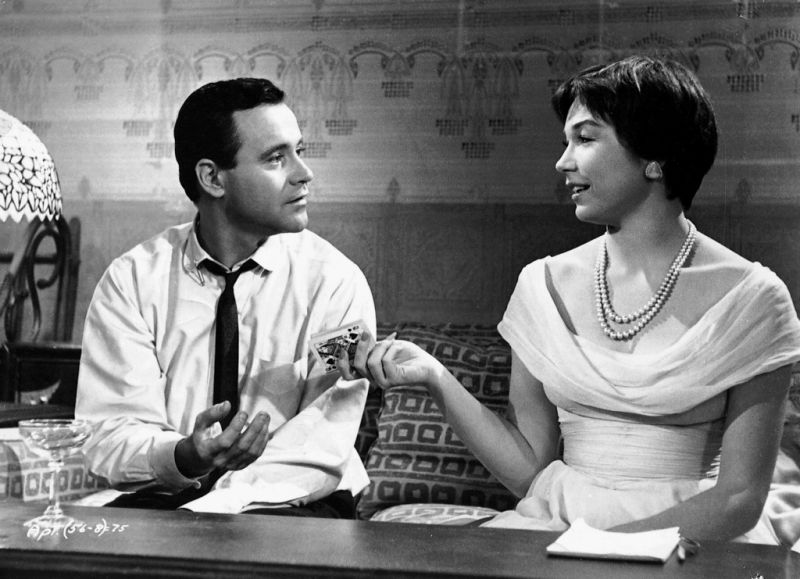
Billy Wilder reclaimed his Best Picture crown and made audiences bawl their eyes out with this disarmingly funny and endlessly quotable NYC-set romantic comedy — the cherry on top in the director’s legendary career as well as one of the rare perennial Valentine Day’s fixtures that can do double-duty as a family-friendly festive flick.
Forget Luca Guadagnino’s 2024s “Challengers”: If you’re looking for cinema’s quintessential ‘menage a trois’, look no further than this stone-cold classic released at the tail end of Hollywood’s Golden Age, about a low-level New York office drone who lends out his Upper West Side apartment to stay in his boss’s good graces but instead ends up falling head over heels in love for one of his current flings, the company’s happy-go-lucky elevator operator.
Anchored by a whip-smart script, an all-timer ending, and a trio of knock-out performances by Jack Lemmon, Shirley MacLaine, and Fred MacMurray, “The Apartment” represents the purest distillation of Wilder’s trademark sharp wit and barbed cynicism. Today, it continues to grow in stature as one of the defining Hollywood movies of its era, not to mention one of the most deserving Best Picture recipients of all time.